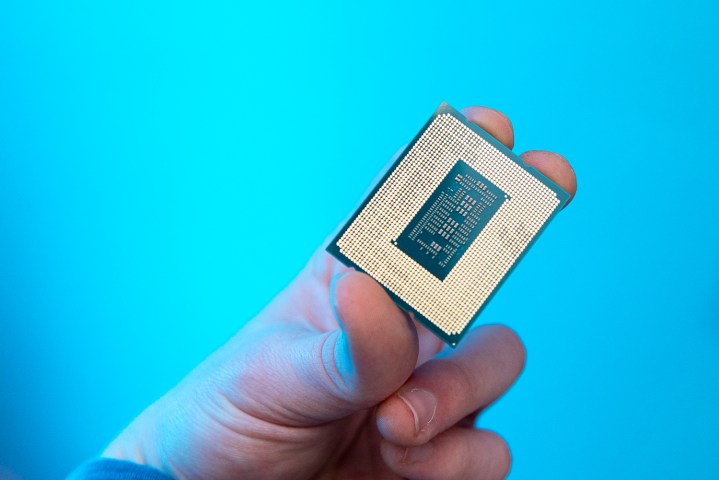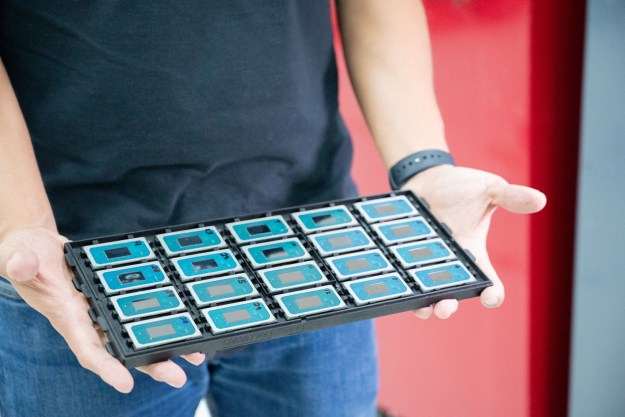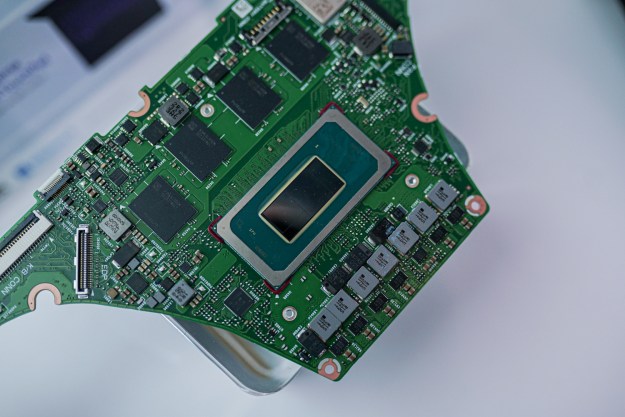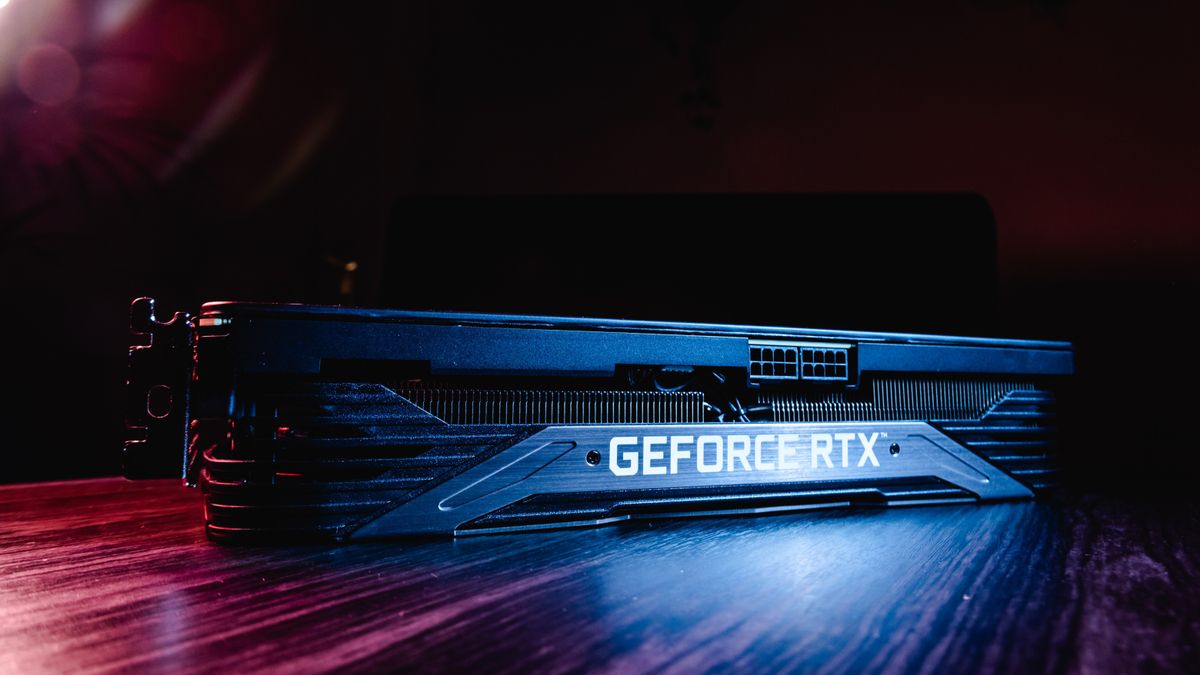
Over the past few weeks, we’ve seen an increasing number of reports of instability on high-end Intel CPUs like the Core i9-14900K. Asus has released a BIOS update for its Z790 motherboards aimed at addressing the problem, but it carries a performance loss of upwards of 9% in some workloads.
The most recent BIOS update from Asus includes the Intel Baseline Profile. This profile disables various optimizations that are automatically applied on Asus Z790 motherboards and runs high-end Intel chips within Intel’s specific limits. Hardwareluxx tested the new profile with the Core i9-14900K and found that the CPU ran around 9% slower in multiple tests.
In Cinebench R23, for example, the German publication found that the Intel Baseline Profile slashed performance by 9%. In Y-Cruncher, a benchmark that calculates Pi, the performance drop was 11%. Even games were affected, with Starfield, Shadow of the Tomb Raider, and F1 2023 showing an 8% drop in performance when tested at 720p (these differences should disappear at higher resolutions).
One of the main reasons behind the instability, it seems, is the unlimited power budget available to high-end Intel CPUs on some motherboards. With the proper BIOS settings, the maximum turbo power available to a chip like the Core i9-14900K is 4,095 watts. Your CPU will never draw that much power, but such a high limit allows the chip to draw as much power as it needs for brief spurts, even if that results in a crash.
These settings follow some BIOS adjustments we’ve seen experts recommend over the past few days. Asus presumably released the BIOS update in response to Intel’s investigation of the problem, but it’s not clear if other motherboard vendors will follow suit.

The performance drop only applies if you were using the various enhancements available on Asus Z790 motherboards. However, you might have been using those enhancements without even knowing it. By default, Asus automatically applies whatever enhancements it dems best for your CPU within the BIOS, potentially causing instability. If you haven’t messed with your BIOS settings, there’s a good chance your CPU will run slower with the Intel Baseline Profile applied.
Thankfully, that shouldn’t impact gaming performance much. The performance drop mainly shows up in other applications, while the instability that this BIOS update addresses shows up mainly in games. It’s not an ideal trade-off regardless, but hopefully it addresses the problems with crashing for Core i9-14900K owners.
It’s still not clear what the scope of the problem is with Intel’s high-end CPUs. Right now, it appears that the Core i9-13900K and Core i9-14900K are the main culprits, with the Core i7-13700K and Core i7-14700K affected to a lesser degree. Only some of these chips show instability issues, while other Intel CPUs shouldn’t have any problems.
Editors’ Recommendations
- We might have an answer to Intel’s crashing crisis
- I tested Intel’s XeSS against AMD FSR — and the results speak for themselves
- Gamers are reportedly returning Intel Core i9 CPUs in droves
- 4 CPUs you should buy instead of the AMD Ryzen 7 5800X3D
- Intel’s next-gen GPU might be right around the corner

Jacob Roach is a writer covering computing and gaming at Digital Trends. After realizing Crysis wouldn’t run on a laptop, he…
We finally know the price of Asus’ most powerful gaming NUC

The first Asus ROG NUC (Next Unit of Computing) model is just around the corner. The small form factor PC is now up for pre-order at a German retailer, and although it’s powerful enough to rival some of the best laptops, it costs more than many comparable models — and you’ll still have to pay extra for a monitor.
Asus’ first take on Intel’s portable PC contains a lot of compute power in a small chassis. Although there are a few configurations of the PC, the one that was spotted up for sale ahead of time comes with Intel’s latest Meteor Lake-H CPU, the Core Ultra 9 185H, which sports 16 cores and 22 threads and can be boosted to run at up to 5.1GHz, all with a thermal design power (TDP) of 45 watts. However, Asus allows overclocking, meaning that the CPU can run at up to 65 watts instead.
Intel just boosted gaming performance by up to 155%

Intel’s engineers once again managed to introduce significant improvements in the latest driver update — but this time, it’s not the discrete graphics cards that received a boost. Instead, the recent patch targets integrated Intel Arc GPUs found in Intel Core Ultra processors, which are some of Intel’s top CPUs for laptops. This update adds support for a couple of games, but more importantly, it boosts gaming performance by as much as 155%.
For starters, the new 31.0.101.5333 WHQL driver adds support for Last Epoch and Sea of Thieves, more precisely, the DX 12 update. This applies both to the Intel Arc A-series, meaning dedicated GPUs, and to the Core Ultra chips. Next, we have a slew of performance improvements in DX11 games.
Intel road map explained: going beyond 2027

Intel revealed a new road map at its Intel Foundry Services (IFS) Direct event that will take the company into 2027. It’s an extension of the road map Intel laid out nearly three years ago, shortly after Intel’s CEO Pat Gelsinger took the reins of the company.
Although processor road maps aren’t anything new, Intel has delivered on the cadence it laid out a few years ago. This updated road map shows what comes next as we approach the end of the original plan Gelsinger laid out. Keep in mind that Intel is focused on the process advancements here and not individual processors.
Meteor Lake and where we are now
[ For more curated Computing news, check out the main news page here]
The post Some Intel CPUs lost 9% of their performance overnight | Digital Trends first appeared on www.digitaltrends.com






/cdn.vox-cdn.com/uploads/chorus_asset/file/25546355/intel_13900k_tomwarren__2_.jpg)







